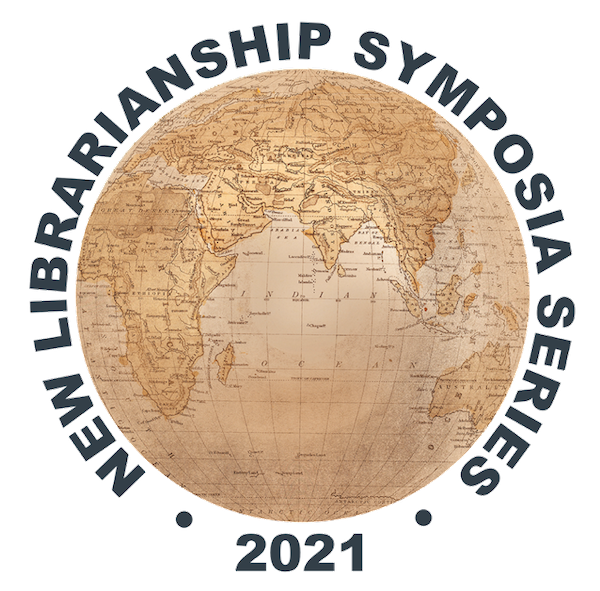Submission Type
Creative Format Contribution
Symposium Selection
Equity, diversity, and inclusion
Keywords
Informational Sustainability; Sustainable development; Sustainable services; Librarianship; Libraries.
Abstract
For many people, libraries are known as institutions that only promote the safekeeping, conservation and organization of knowledge. However, it is known that libraries have a wide range of services, with the potential for transformation, social change and socialization of knowledge for the community in which it operates. In this context, the question is: how to reverberate the potential of library services to society? How to make the library more inclusive, egalitarian and sustainable? And how can the community be made aware of the importance of the library for the growth, strengthening and transformation of society? In this perspective, this summary aims to defend the proposal to discuss actions and services that can be implemented and performed by libraries in line with the concept of Information Sustainability (IS). According to Nolin (2010), SI is scored in two distinct missions for the area of informational activity: the first is called 'information for sustainable development', aiming to support the communicative aspects of integration, in line with the ambitions of Global Objectives, seeking to increase the viability of the sustainable development project; and the second called ‘sustainable information development’, as part of a larger project to connect and provide access to sustainable technology. Reinforcing, Geraldo and Pinto (2021), explain that the IS refers to information resources that facilitate integration, awareness and participation in global objectives and in strengthening the process of transforming society according to the dimensions of sustainable development. Thus, it is worth noting that the 'Lyon Declaration on access to information and development', created by IFLA (2014), highlights the relevance of providing secure access to information so that society can exercise its civil, political rights, economic, social and cultural rights. The Declaration states and highlights that access to information supports development, empowering people to: exercise their civil, political, economic, social and cultural rights. The Declaration defends free access to information and that libraries have the potential to achieve this objective and, consequently, to Global Sustainable Development Goals. In conclusion, it reinforces the importance of Librarianship to align its services and actions with Global Sustainable Development Goals, given the potential of libraries to offer informational and practical services, actions and projects in the quest to build an informed, sensitized and mobilized society about the need to rethink the relationship with the environment, in a perspective of management and conscious use of natural and human resources. Seeking to offer a sustainable, equitable and inclusive development for the current context and for future generations, based on the concept of Information Sustainability.
Previous Versions
Nov 1 2021 (withdrawn)
Included in
Informational Sustainability in Libraries: Enhancing more Inclusive, Egalitarian and Sustainable Services
For many people, libraries are known as institutions that only promote the safekeeping, conservation and organization of knowledge. However, it is known that libraries have a wide range of services, with the potential for transformation, social change and socialization of knowledge for the community in which it operates. In this context, the question is: how to reverberate the potential of library services to society? How to make the library more inclusive, egalitarian and sustainable? And how can the community be made aware of the importance of the library for the growth, strengthening and transformation of society? In this perspective, this summary aims to defend the proposal to discuss actions and services that can be implemented and performed by libraries in line with the concept of Information Sustainability (IS). According to Nolin (2010), SI is scored in two distinct missions for the area of informational activity: the first is called 'information for sustainable development', aiming to support the communicative aspects of integration, in line with the ambitions of Global Objectives, seeking to increase the viability of the sustainable development project; and the second called ‘sustainable information development’, as part of a larger project to connect and provide access to sustainable technology. Reinforcing, Geraldo and Pinto (2021), explain that the IS refers to information resources that facilitate integration, awareness and participation in global objectives and in strengthening the process of transforming society according to the dimensions of sustainable development. Thus, it is worth noting that the 'Lyon Declaration on access to information and development', created by IFLA (2014), highlights the relevance of providing secure access to information so that society can exercise its civil, political rights, economic, social and cultural rights. The Declaration states and highlights that access to information supports development, empowering people to: exercise their civil, political, economic, social and cultural rights. The Declaration defends free access to information and that libraries have the potential to achieve this objective and, consequently, to Global Sustainable Development Goals. In conclusion, it reinforces the importance of Librarianship to align its services and actions with Global Sustainable Development Goals, given the potential of libraries to offer informational and practical services, actions and projects in the quest to build an informed, sensitized and mobilized society about the need to rethink the relationship with the environment, in a perspective of management and conscious use of natural and human resources. Seeking to offer a sustainable, equitable and inclusive development for the current context and for future generations, based on the concept of Information Sustainability.


